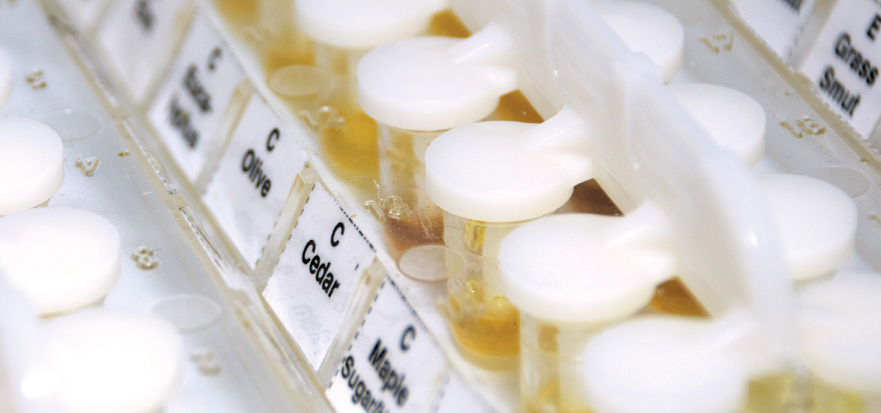Thanks to lobbying efforts from the House of Medicine, Congress took action this month. The Protecting Medicare & American Farmers from Sequester Cuts Act avoided a 4% statutory cut from the PAYGO provisions, extended the moratorium on the 2% Medicare…
Getting Tested for a Penicillin Allergy
Overview
Allergy to penicillin and related antibiotics is the most commonly reported drug allergy in the United States.
Approximately 85% of patients who describe themselves as “penicillin allergic” will have negative skin tests and can safely receive penicillin and related antibiotics.
However, it is critical to detect which patients are truly allergic to penicillin, as exposure to the antibiotic could cause very serious problems, including anaphylaxis.
Anaphylaxis is a serious allergic reaction that is rapid in onset and may cause death. It typically causes a number of symptoms including an itchy rash, throat swelling, and low blood pressure.
On a mechanistic level, anaphylaxis is caused by the release of mediators from certain types of white blood cells triggered either by immunologic or non-immunologic mechanisms. It is diagnosed on the basis of the presenting symptoms and signs.
The primary treatment is injection of epinephrine, the administration of intravenous fluids, and positioning the person flat, with other measures being complementary.
Testing for Penicillin Allergy
A doctor will use the PRE-PEN test, which is the only FDA approved skin test for the diagnosis of penicillin allergy. Penicillin skin testing involves applying skin prick and intradermal tests with PRE- PEN, Penicillin G, and both a positive and negative control.
A doctor will examine the test sites for a reaction and if the testing is negative we will perform an oral challenge. The entire process takes about an hour.
Potential benefits of testing
For patients that are concerned that they may be sensitive or allergic to penicillin, there are many benefits of testing with PRE-PEN.
If the patient is shown to test negative for penicillin allergy, this will eliminate any concern about using penicillin, which is an important, effective and well tolerated treatment for many infections.
Another benefit is decreased out of pocket costs for antibiotics, since many alternatives to penicillin are much more costly.
Finally, testing will help decrease the overuse of broad spectrum antibiotics which leads to increased drug- resistant bacteria.
Who should be tested for penicillin allergy?
Any patient with history of a reaction to a penicillin antibiotic or who is currently denied access to certain antibiotics out of concern for such reactions should be tested.
Patients with known ANAPHYLACTIC reaction to penicillin, in the past 5 years, should NOT be tested.







